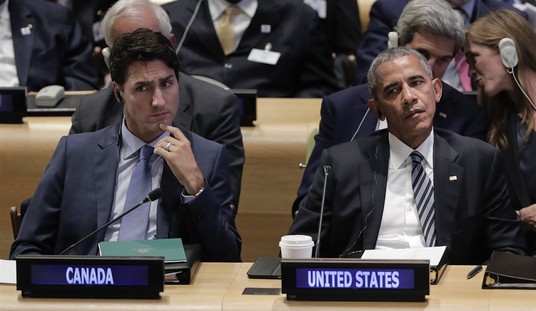Before he had his head was violently exploded by a magic bullet in front of the world — the details of which the much-vaunted intelligence community has continued to resist entering the public record to this day because they American people don’t need to know who assassinates their leaders in this Democracy™ — President John F. Kennedy had the following words to say regarding transparency in government and whether that’s an American value or not:
The very word 'secrecy' is repugnant in a free and open society; and we are as a people inherently and historically opposed to secret societies, to secret oaths and secret proceedings.
The role of Congress, per the Constitution, is to exercise oversight over the executive branch as a check on its worst excesses.
Related: Nancy Pelosi’s Daughter Caught on Hidden Camera Admitting January 6 Was a Hoax
Watching the Gabbard confirmation hearing in its entirety, it is impossible for any honest person to come away with the conclusion that Congress is fulfilling that role.
On the contrary, it is very obviously and unapologetically devoted to protecting state secrecy above all else — even when it’s abusing its power in contravention of the Constitution in the dark.
Tulsi groveling to the state national security apparatus, repeating that Edward Snowden broke the law and he shouldn’t have revealed that the government was illegally spying on American citizens wasn’t sufficient for the Senate Intelligence Committee.
It also wasn’t sufficient groveling to make a 180-degree position shift and embrace the United States Foreign Intelligence Surveillance Court, Section 702, which conducts its business in secret and routinely is abused by the intelligence agencies to illegally spy on American citizens. No longer merely an opinion held by libertarian extremists or whatever, this fact is federal case law as of January 2025.
Via Electronic Frontier Foundation (emphasis added):
A federal district court held that backdoor searches of databases full of Americans’ private communications collected under Section 702 ordinarily require a warrant. The landmark ruling comes in a criminal case, United States v. Hasbajrami, after more than a decade of litigation, and over four years since the Second Circuit Court of Appeals found that backdoor searches constitute “separate Fourth Amendment events” and directed the district court to determine a warrant was required. Now, that has been officially decreed.
In the intervening years, Congress has reauthorized Section 702 multiple times, each time ignoring overwhelming evidence that the FBI and the intelligence community abuse their access to databases of warrantlessly collected messages and other data. The Foreign Intelligence Surveillance Court (FISC), which Congress assigned with the primary role of judicial oversight of Section 702, has also repeatedly dismissed arguments that the backdoor searches violate the Fourth Amendment, giving the intelligence community endless do-overs despite its repeated transgressions of even lax safeguards on these searches.
This decision sheds light on the government’s liberal use of what is essential a “finders keepers” rule regarding your communication data. As a legal authority, FISA Section 702 allows the intelligence community to collect a massive amount of communications data from overseas in the name of “national security.” But, in cases where one side of that conversation is a person on US soil, that data is still collected and retained in large databases searchable by federal law enforcement. Because the US-side of these communications is already collected and just sitting there, the government has claimed that law enforcement agencies do not need a warrant to sift through them. EFF argued for over a decade that this is unconstitutional, and now a federal court agrees with us.
Still, Tulsi was required to warm up to Section 702 after a career of denouncing it. Still, she must be made to say that Edward Snowden is a “traitor” for telling the American people what their own government was doing to them.
The most unhinged of the bipartisan lot was Michael Bennett, the lady who doth protest too much.
Related: Pentagon Fails SEVENTH Straight Audit, Cites ‘Progress Made’
Putting aside the fact that Edward Snowden — a hero in my view who sacrificed his career and, for all he knew at the time, his life — revealed illegal, unconstitutional abuses by the intelligence agencies collecting Americans’ private data in violation of the Fourth Amendment, the classification system itself as an absurdity.
Via The Hill (emphasis added):
By some estimates, there are as many as 50 million documents that are classified each year. Another major factor is over-classification, which includes classifying documents that should never have been classified and stamping “Top Secret” on reports that warrant only a “Confidential” tag. In addition, the number of officials and agencies that have the power to classify material is also huge. It’s not limited to the president’s office, and obvious agencies like Defense, State and the CIA, but extends to every federal agency and far down their organization charts.
But the biggest problem is that once documents are classified, they almost never lose their classification label. There is an executive order that supposedly automatically declassifies documents after 25 years, but it has exceptions, and the order alone and the passage of time do not remove the classification stamp or make the records publicly available.
“Top secret,” like “national security,” is a euphemism that cynical creeps like the Intelligence Committee members and their clients in the “intelligence community” use to mean “anything that might embarrass us and expose our criminality.”









